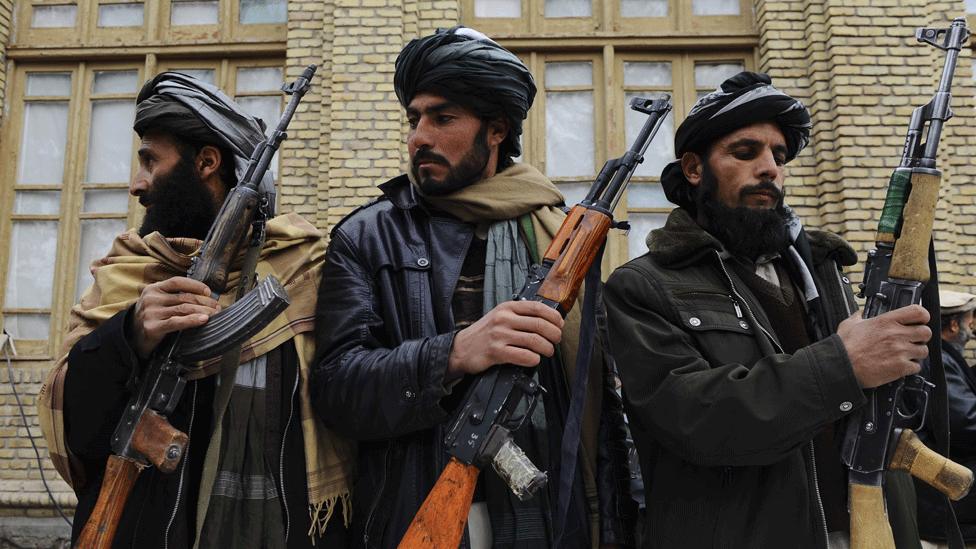The Afghan district stuck between IS and the Taliban
- Published
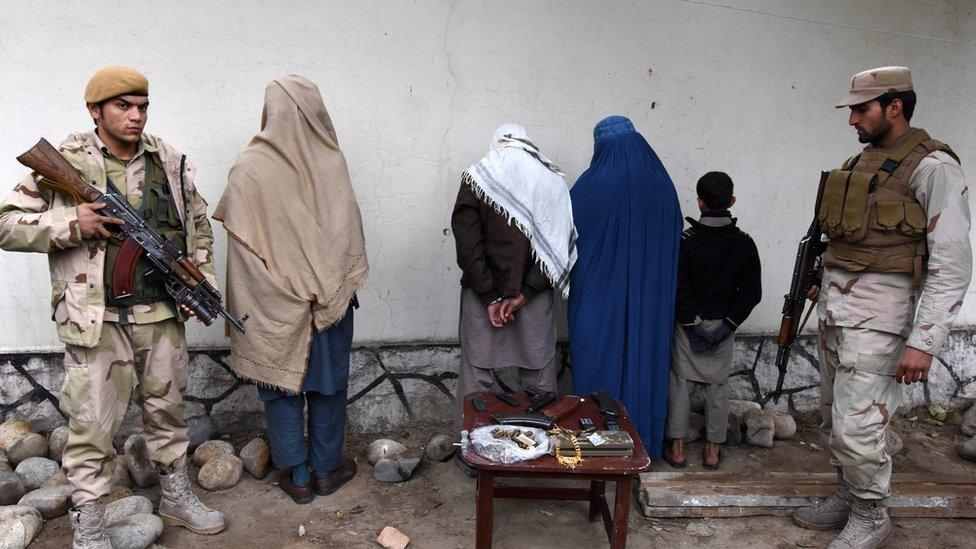
Afghan security forces show four suspected members of the Islamic State group captured in Nangarhar province where IS and Taliban fighters have battled each other
Taliban insurgents in eastern Afghanistan are forcing locals to contribute money or fighters to confront Islamic State group rivals, local officials say.
A number of elders from the remote Hisarak district told the BBC that the Taliban were using the presence of IS in Afghanistan as a pretext to extort locals.
Located less than 80 kilometres east of Kabul, Hisarak is the western-most part of Nangarhar province, where the Taliban has a strong presence.
The province has also seen fighting between Taliban and rival insurgents who have declared loyalty to the Islamic State group.
In Nangarhar's capital Jalalabad I met a number of officials and tribal elders from Hisarak who had taken shelter there.
Abdul Khaliq Maroof is Hisarak's district governor. He needs to take a helicopter to reach his office, but for the past month he's been stranded in Jalalabad.
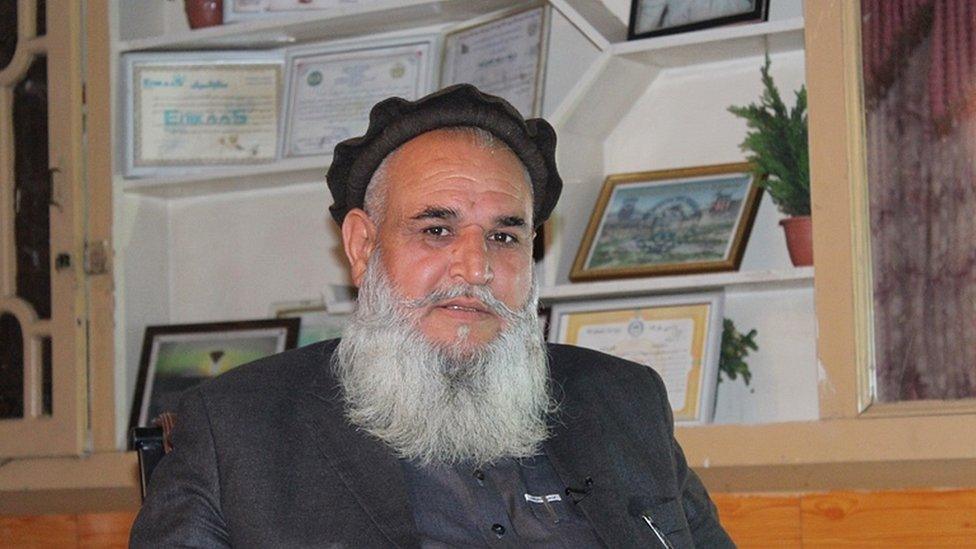
Hisarak district chief Abdul Khaliq Maroof says he can only venture out a few kilometres from the district centre
The Afghan government only controls the district centre and some villages in Hisarak.
"The Taliban can impose on people whatever rules they want," Mr Maroof told me. "The lion's share of their income in Hisarak comes from Islamic taxation (Ushur). They use it to purchase weapons and ammunition."
Mr Maroof is a high profile target for the Taliban. Even in Jalalabad the tight security around his house gives the impression of a person who is constantly on the enemy's radar.
Funds or fighters?
His guestroom is littered with certificates and appreciation letters from the Afghan government and international forces, praising his performance.
But he admits that he cannot move freely or without the protection of a Humvee vehicle - even a few kilometres outside Hisarak district centre.
It's a similar story for pro-government elders in the district, the traditional power brokers in rural Afghanistan.
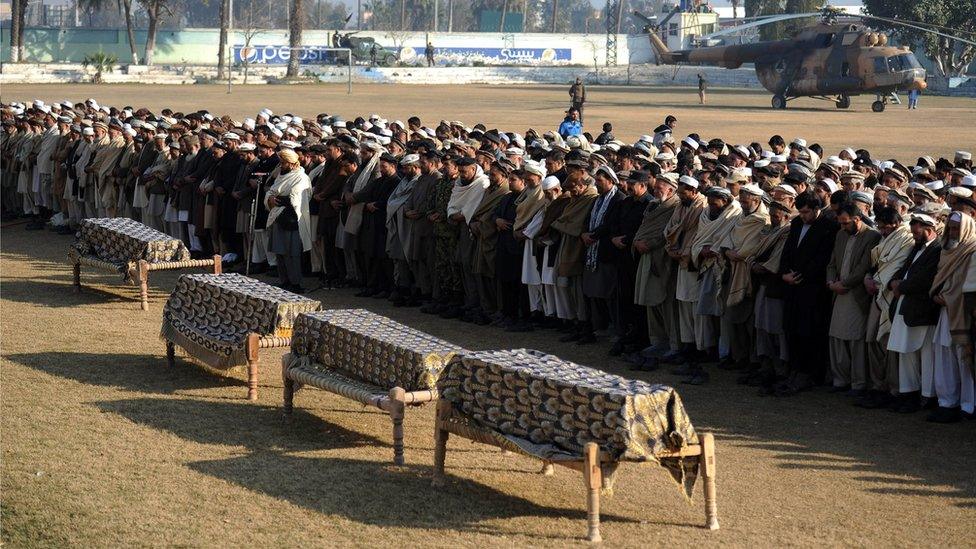
Funeral prayers for victims of a suicide bomb attack targeting pro-government provincial politician Obaidullah Shinwari in Jalalabad in January 2016
In the narrow streets, on the outskirts of Jalalabad city, I met one of them, Malik Zafar.
He told me that he is stuck because he cannot take a helicopter back to Hisarak like local officials do. Going by road he says is gambling with one's life.
Mr Zaraf told me that the Taliban's fundraising efforts have recently taken on a new focus - the fight against rival militants from the Islamic State group in Afghanistan.
"This information is true and all in Hisarak know about it - the Taliban demand money from local people," Mr Zaraf said. "They collect money and some locals had to give them men to fight against IS."
Even though the footprint of the Islamic State group hasn't reached Hisarak District itself, local elders say that the presence of IS in Nangarhar is being used as an excuse by the Taliban to recruit young men and raise funds.
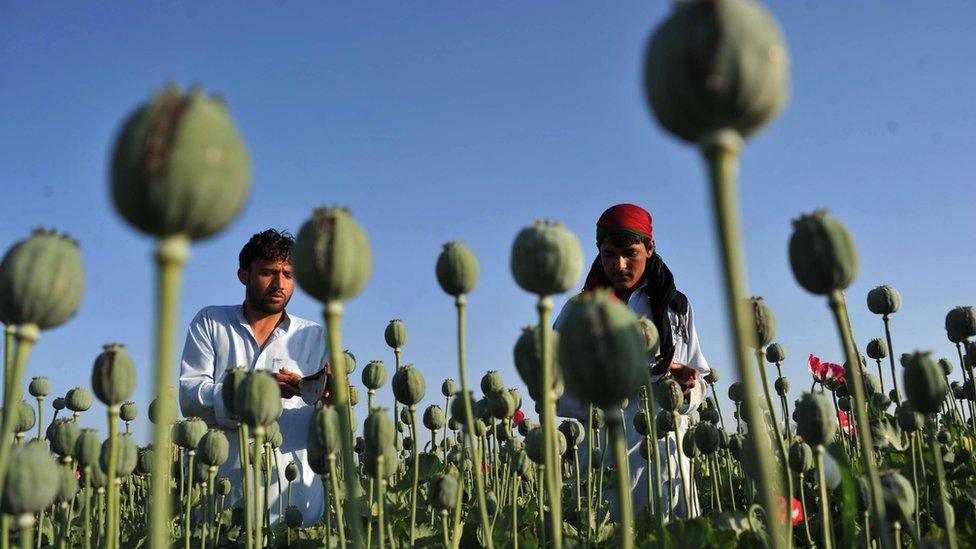
Agriculture is the main source of income in many of Nangahar's districts, including wheat, rice and poppy cultivation
Locals have reported that several bodies were brought back to Hisarak from another district where Taliban and IS had been fighting.
Hisarak is a mountainous district which also shares a border with Pakistan, allowing Taliban fighters to move across the frontier, according to the district chief.
Communities here are strictly traditional with agriculture the main source of income, including poppies, wheat and rice.
Easy targets
Ahmad Ghani was another Hisarak resident who agreed to meet me in a busy market. He too is worried about his safety and was clearly not keen to let me know where he lives.
Mr Ghani is a member of the Hisarak district council, but even at the grassroots of Afghan politics the threat from the Taliban is very real. Any association with the Afghan government - viewed by the insurgents as a foreign-controlled puppet administration - is dangerous.
Mr Ghani told me he had to flee the area. "Life does become difficult for people under the Taliban rule," he said. "I reached a stage where when my father passed away I couldn't even attend his funeral."
The threat to local government officials and loyal elders was underlined by an attack last month when a suicide bomber killed at least 13 people at the Jalalabad home of a prominent local politician who backs peace talks between the government and the Taliban.
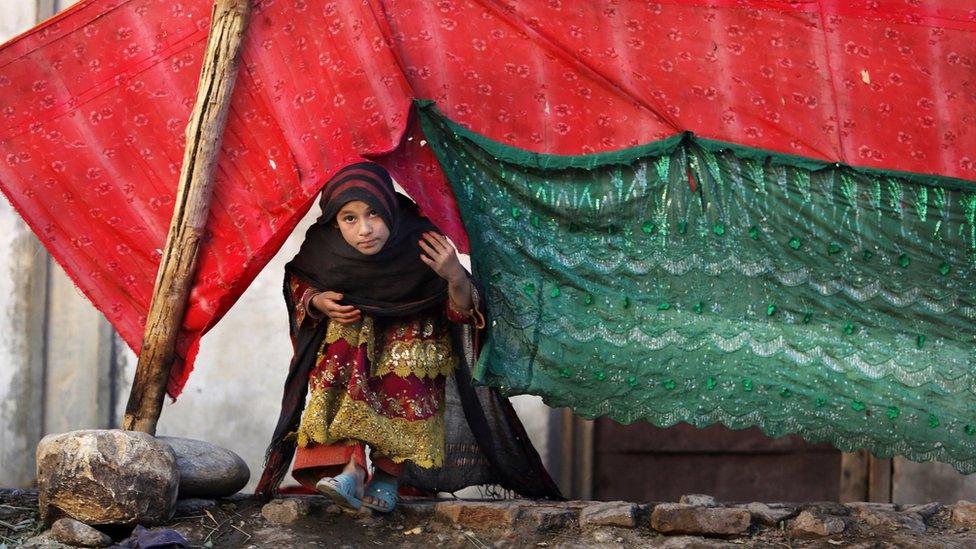
Nangarhar officials say that tens of thousands of people have been displaced across the province by Islamic State militants or the perceived threat from the group
As the government presence shrinks in districts like Hisarak, the Taliban become stronger in Nangarhar province and it's the civilian population paying the price.
In the past year numerous families have fled the district and have settled in Jalalabad.
Hisarak elders now living here told me that that the young generation are hardest hit by the volatile situation which in turn has created an opportunity for people smugglers.
One elder told the BBC that locals who have the money have already sent their sons to Europe by illegal means. He said he knew families who had sold or leased their patch of land to try and save their young men from the conflict.
One of the local people smugglers claimed he had sent more than 200 men to Europe in the past two years - from Hisarak district alone.
- Published26 January 2016
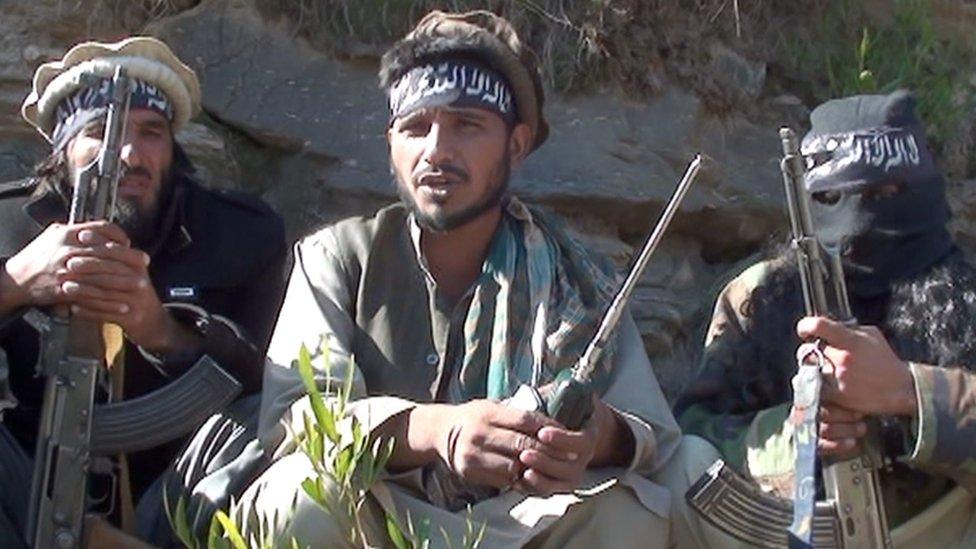
- Published26 December 2015
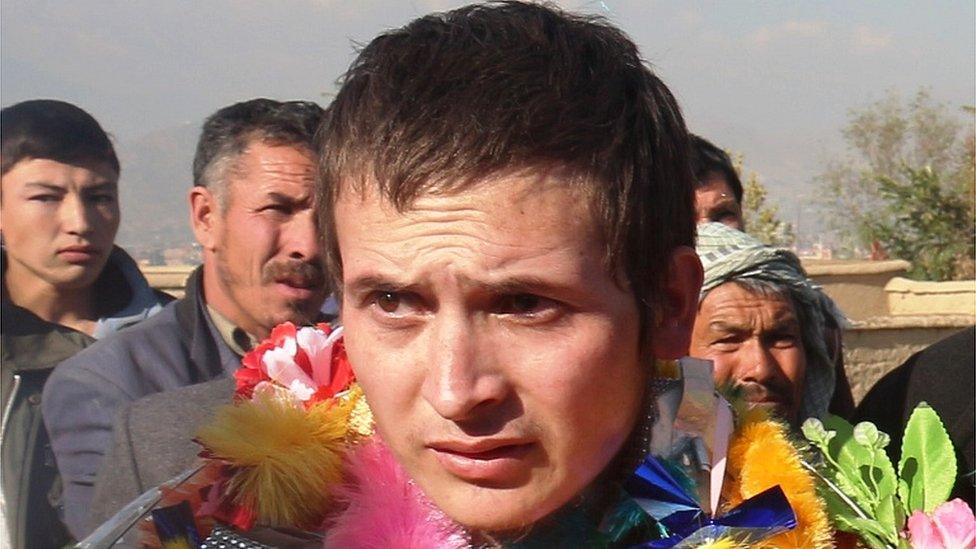
- Published18 December 2015
